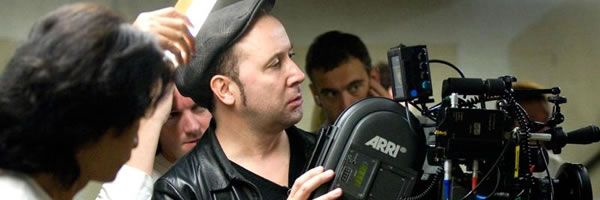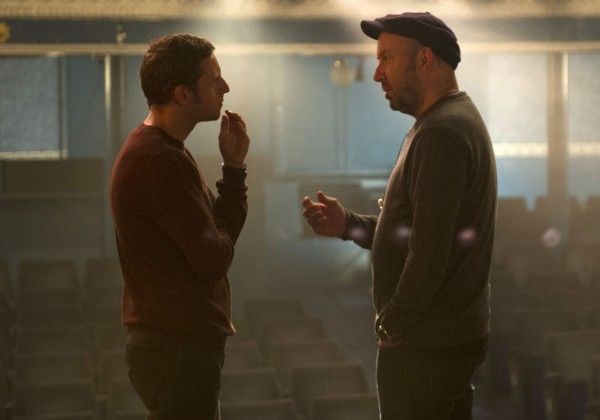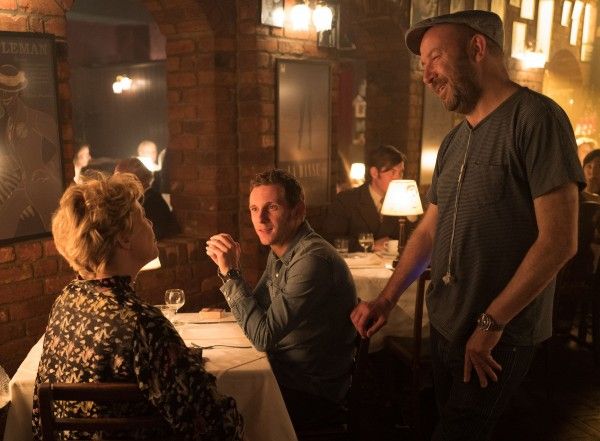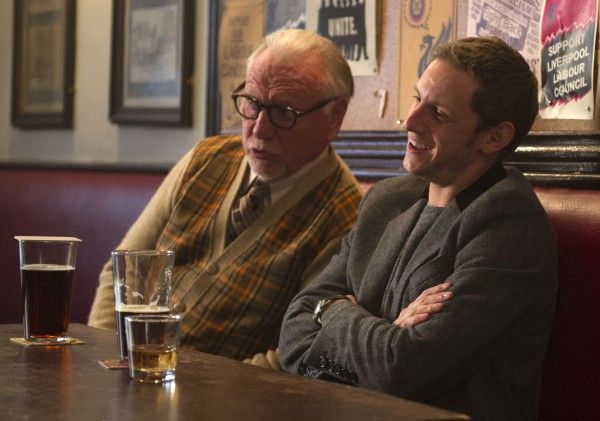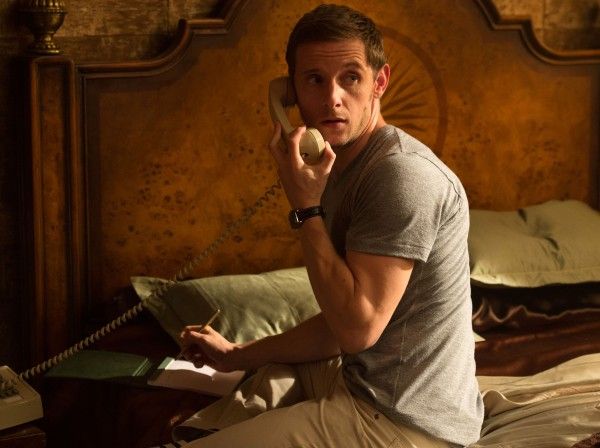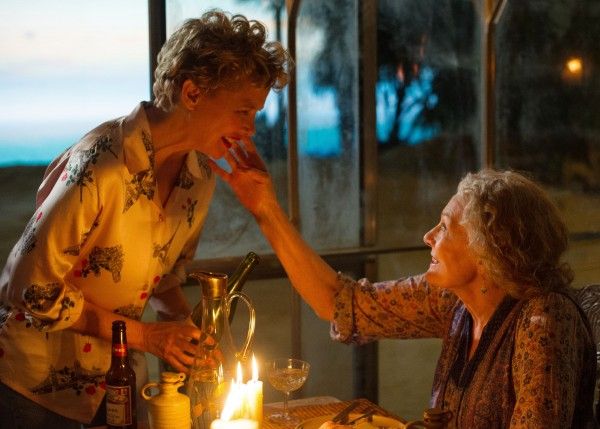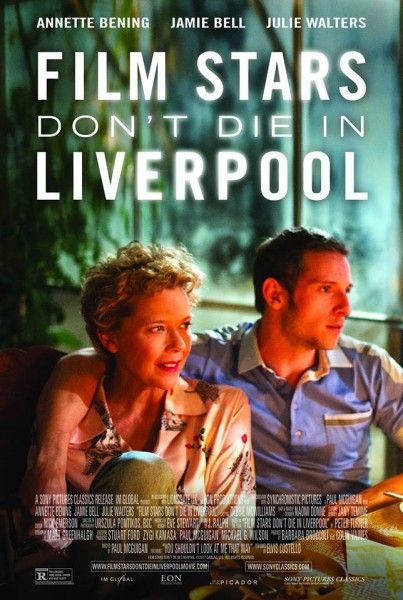From director Paul McGuigan and based on the book by Peter Turner, Film Stars Don’t Die in Liverpool delves into the playful but passionate relationship between Turner (Jamie Bell) and Academy Award-winning actress Gloria Grahame (played magnificently by Annette Bening) in Liverpool in 1978. The affair between the eccentric femme fatale and her young lover quickly became a deep bond, leading Gloria to turn to Peter and his family for comfort at a time that would test the strength of that bond.
During this 1-on-1 phone interview with Collider, filmmaker McGuigan talked about why he wanted to tell the love story between Gloria Grahame and Peter Turner, what Bening and Bell brought to these roles, the biggest production challenges with this shoot, why he learned from screening the film for people, what he’d like to do next, and why he likes to mix things up between film and TV.
Collider: How did this script come your way, and what was it about this relationship that made you want to direct this film?
PAUL McGUIGAN: The script came to me through Barbara Broccoli. Barbara and I had known each other for quite a little while, and she sent me the script and said that she’d been trying to do this story for 22 years because Peter Turner is a good friend of hers and it’s his story. What I loved about it was that the script is based on a book by the same name and it’s a very slight volume of about 144 pages. I loved the simplicity of the relationship and I’d never really done a love story before, so I really wanted to do it. And then, I heard that Annette Bening was also interested in doing it, so everything came together well. Sometimes it happens like that, and it all just lands in the right place and you go for it. I was really interested in making a love story, and I liked the Hollywood elements and film elements of it. I knew, as a filmmaker, I could put some of those older film techniques into the work that I was doing. I was paying homage, a little bit, to Gloria’s past work, through the camera and with lots of transitions.
Was it ever intimidating or nerve-wracking to direct a film that your producer has been trying to get made for over 20 years?
McGUIGAN: As a director, you only really get that one go at it, so I always have the philosophy of, “Let’s see what happens.” It’s good that Barbara is so passionate about the story that it’s the opposite of being intimidated. She makes you fall in love with it, through her eyes. The reason why it took so long, I guess, was just that sometimes things have to line up. Annette was far too young when she first was approached about it, 10 or 15 years ago. She was having kids and she didn’t really want to do it then. Sometimes things just line up. Barbara handed me the baton at the right time, and she was amazing and very supportive.
Annette Bening was already interested in this project, but how did you come to Jamie Bell?
McGUIGAN: I hadn’t really known Jamie, personally, but I’ve known his work and I was really interested in him. I knew he came from a very working class background in the northeast of England. Although Liverpool is in the northwest, I felt that he understood the family dynamic, which I thought was important to the story. He understood this idea of a boy coming from a working class background who wanted to be an actor. That’s something that he went through, with the weathering looks that people give you when you want to be on the stage. Also, he’s just such a brilliant actor. He came to me, Annette and Barbara in Los Angeles, and he read a couple of scenes with Annette and it was just instant. It was one of those things where you’re not really struggling to find the actors to be in the film because they came to us pretty quickly. Annette Bening is obviously a great attraction for other actors to come out and play.
You decided to shoot the couple’s break-up from two different perspectives. What did you want to convey with that? Why was that important to you?
McGUIGAN: It’s funny, when we were doing the final days of rehearsals, after rehearsing for three weeks, both Annette and Jamie and I thought that there was something missing, a little bit. There was another element that we’d never really showed, and that element was actually Gloria’s point of view. The film is told from Peter’s point of view, and because this woman that was enigmatic and elusive, he couldn’t understand why she threw him out of the house. So, I thought it would be interesting for the audience to see it twisted around and see the same scene as before, but from her point of view. You get to understand that pain and how difficult it must have been for her to have made that decision, in order to protect Peter. She threw him out of her life, really. The idea of going to the doctor’s and being told that it’s too late and there’s nothing that can be done for her was a death sentence, and here was this young man, so she tried not to let him go through that. I thought that was really interesting, so we did that thing where we showed the same scene twice, and it was really just so that the audience could experience the story from her point of view for a little while and understand her motivation. I think if you didn’t have that, you would be somewhat angry with her. It’s fine to be angry with someone, but I wanted the audience to understand what a big sacrifice it was for her, as well.
What were the biggest production challenges that you had with this shoot?
McGUIGAN: We were a small budget movie, but we had to cover New York and Los Angeles, so I decided to build New York and Los Angeles in the studio. We did it all with back projection, like in the old days. There was no green screen or blue screen. We built the beach in the studio. We built the LAX terminal in the studio. It was a real collaboration between Eve Stewart, the production designer, myself, and Urszula Pontikos, who was the director of photography. This film was made by lots of females. Lots of women were involved with this film. I think I was the only head of department that wasn’t. That was important. The biggest production challenges were met with this excitement and ideas about what we could do in the studio and how we could play with it a little bit. All of the driving shots were done by projection, how they used to do them in some of Gloria’s movies. I wanted to play with that, a little bit, and make it heightened, as well.
Because of the tight budget on this, did you have to really do a lot of pre-planning and make sure that you didn’t shoot a bunch of stuff that would have to get deleted later?
McGUIGAN: Yeah, absolutely! I started off doing smaller budget films, and I really like it. I like the problem solving that you have to go through. Because you don’t have the money, you have to come up with more creative ideas to solve puzzles. You have to be prudent about what you shoot and how much material you’re going to shoot because you don’t have an infinite amount of time. We only had 40 days to shoot this, which is not a great deal of time. I really enjoyed that. I enjoy that kind of challenging aspect of it.
Was this a film that you screened for friends and family, to get their feedback?
McGUIGAN: Yes.
Did you learn anything from screening it that affected the finished product?
McGUIGAN: That’s a good question. I screened it for lots of friends. I edited it up in Scotland, which was nice, so I would have people ‘round my editing suite, maybe once a week. What I found was that there was always the question of, “Who is this woman?,” which I thought was interesting. The point of the film is that, hopefully, the audience will Google Gloria Grahame. It’s not a Gloria Grahame biopic. We had to keep the love story the beating heart of the piece. There were some scenes where we had Peter on his own, or Gloria on her own, but we just had to keep it very simple. There’s nothing better than screening the film in such a rough state and getting the initial reactions, and the reactions that I got were really interesting because there was always crying and people getting really moved by it. In a way, you’re always happy about that because you know there’s something there that people are really attached to and emotionally involved with. That was always there. So, it was just really honing in what the true story was. And I showed it to lots of women, like my sister and my wife, and it was interesting because they all said that it was really nice to see a woman of a certain age being sexual and being a little naughty and being a little badly behaved, and just being allowed to be herself. They just through that was very refreshing and that Annette was very brave, in the way that she was quite exposed. She never really wore any make-up and she got naked. She was quite up for being that woman, and that was brilliant.
Do you have any idea what you’re going to do next?
McGUIGAN: No, I’m going to sit in an empty room and not talk for awhile. I’ve been doing this for a long time. I started off doing low-budget films, like Gangster No. 1, and then I went on to bigger budget stuff. I’m really just excited about trying other things. I like to vary what I do, and I like to vary it between television and films. I’m holding back a little bit and am just waiting for the right ideas to come. Perhaps it will be something that I develop myself. Because I don’t write, I’m at the will of a great producer coming up with a script, which doesn’t happen that often.
You’ve directed a lot of different TV series, across various genres. How do you find directing television compared to movies, and what do you specifically enjoy about directing TV pilots?
McGUIGAN: I don’t really direct episodes of something. I direct the pilot, which means I get a little bit more time. I couldn’t really do episodic. I’m not that way inclined. I really like the speed of it. I like the challenges of it. Also, I like doing pilots because there’s a lot of ambition and good will. People are really rooting for you and will put in the work because there’s lots of things at stake. There’s a sense of doing it for the right reasons. Television in the UK and television in America are two different animals, really. In the UK, you’re with a project all the way through, so you’re there from pre-production through shooting and through post-production. In America, you’re in the editing suite for four days, and then they chuck you out, so you have to have a different mind-set. I love doing it. It’s so varied.
Film Stars Don’t Die in Liverpool is in theaters nationwide throughout January and February.

